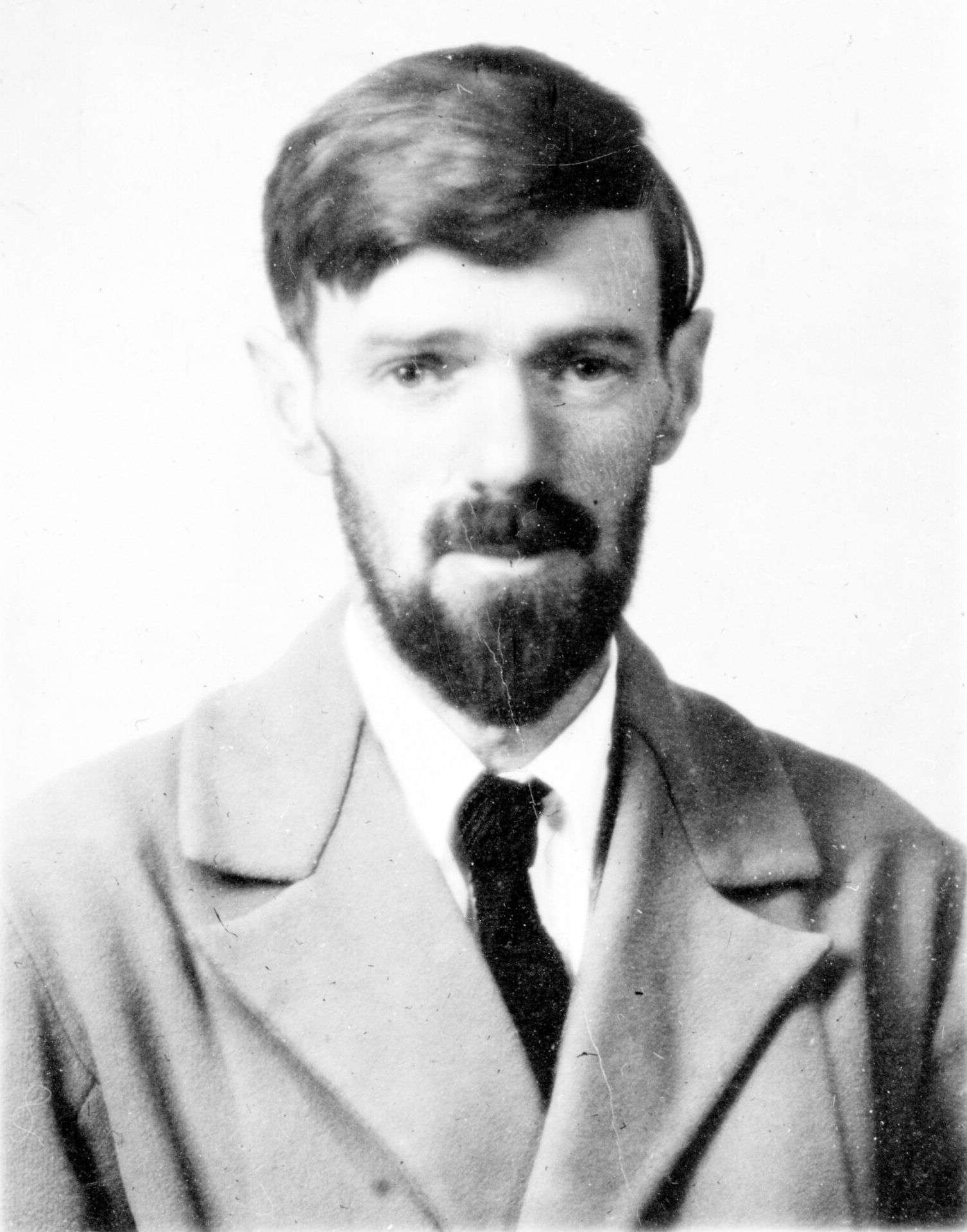D. H. Lawrence
 David Herbert Lawrence (11 September 1885 – 2 March 1930) was an English novelist, short story writer, poet, playwright, literary critic, travel writer, essayist, and painter. His modernist works reflect on modernity, social alienation and industrialization, while championing sexuality, vitality and instinct. Three of his most famous novels — ''The Rainbow'', ''Women in Love'', and ''Lady Chatterley's Lover'' — were the subject of censorship trials for their radical portrayals of sexuality and use of explicit language.
David Herbert Lawrence (11 September 1885 – 2 March 1930) was an English novelist, short story writer, poet, playwright, literary critic, travel writer, essayist, and painter. His modernist works reflect on modernity, social alienation and industrialization, while championing sexuality, vitality and instinct. Three of his most famous novels — ''The Rainbow'', ''Women in Love'', and ''Lady Chatterley's Lover'' — were the subject of censorship trials for their radical portrayals of sexuality and use of explicit language.Lawrence's opinions and artistic preferences earned him a controversial reputation; he endured contemporary persecution and public misrepresentation of his creative work throughout his life, much of which he spent in a voluntary exile that he described as a "savage enough pilgrimage". At the time of his death, he had been variously scorned as tasteless, avant-garde, and a pornographer who had only garnered success for erotica; however, English novelist and critic E. M. Forster, in an obituary notice, challenged this widely held view, describing him as "the greatest imaginative novelist of our generation". Later, English literary critic F. R. Leavis also championed both his artistic integrity and his moral seriousness. Provided by Wikipedia
-
141by Vêncio Ricardo ZN, Goo Young, Pascal Laura E, Page Laura S, Chambers Amber A, Liebeskind Emily S, Takayama Thomas K, True Lawrence D, Liu Alvin YGet full text
Published 2009-09-01
Article -
142by Lawrence D. Hayes, Bradley T. Elliott, Zerbu Yasar, Theodoros M. Bampouras, Theodoros M. Bampouras, Nicholas F. Sculthorpe, Nilihan E. M. Sanal-Hayes, Christopher Hurst, Christopher HurstGet full text
Published 2021-08-01
Article -
143by Van Dyck Delfien, Cerin Ester, Conway Terry L, De Bourdeaudhuij Ilse, Owen Neville, Kerr Jacqueline, Cardon Greet, Frank Lawrence D, Saelens Brian E, Sallis James FGet full text
Published 2012-06-01
Article -
144by Yu-Wei Wu, Brendan Higgins, Chaowei Yu, Amitha P. Reddy, Shannon Ceballos, Lawrence D. Joh, Blake A. Simmons, Steven W. Singer, Jean S. VanderGheynst, Thomas Sharpton
Published 2016-12-01Article -
145by Page Laura S, Vêncio Ricardo ZN, Pascal Laura E, Liebeskind Emily S, Shadle Christina P, Troisch Pamela, Marzolf Bruz, True Lawrence D, Hood Leroy E, Liu Alvin YGet full text
Published 2009-12-01
Article -
146by Deep Prakash Saikia, Kalpana Yadav, Dinesh C. Pathak, Narayan Ramamurthy, Ajai Lawrence D’Silva, Asok Kumar Marriappan, Saravanan Ramakrishnan, Vikram N. Vakharia, Madhan Mohan Chellappa, Sohini DeyGet full text
Published 2019-09-01
Article -
147by Alavinia, S.M, Bayley, M.T, Chandra, T., Comper, P., Foster, E., Inness, E.L, Kam, A., Langer, L.K, Lawrence, D.W, Ruttan, L., Saverino, C., Tam, A.View Fulltext in Publisher
Published 2021
Article -
148by Saitta, Evan T., Fletcher, Ian, Martin, Peter, Pittman, Michael, Kaye, Thomas G., True, Lawrence D., Norell, Mark A., Abbott, Geoffrey D., Summons, Roger E, Penkman, Kirsty, Vinther, JakobGet fulltext
Published 2020
Article -
149by Souhail Hermassi, Lawrence D. Hayes, Ahmad Salman, Nilihan E. M. Sanal-Hayes, Emna Abassi, Lolwa Al-Kuwari, Nada Aldous, Nemah Musa, Amna Alyafei, El Ghali Bouhafs, René SchwesigGet full text
Published 2021-09-01
Article -
150by Cecilia M. Borghese, Melissa Herman, Lawrence D. Snell, Keri J. Lawrence, Hyun-Young Lee, Donald S. Backos, Lauren A. Vanderlinden, R. Adron Harris, Marisa Roberto, Paula L. Hoffman, Boris TabakoffGet full text
Published 2017-07-01
Article -
151by Lawrence D. Frank, Jennifer L. Kuntz, James E. Chapman, Eric H. Fox, John F. Dickerson, Richard T. Meenan, Brian E. Saelens, Deborah R. Young, Janne Boone-Heinonen, Stephen P. FortmannGet full text
Published 2019-02-01
Article -
152
-
153by Jhaveri Vimal V, Skoch Jesse, Snell Lawrence D, Hoover Brian R, Ahmadi Ferogh A, Jones Susan M, Grammatopoulos Tom N, Poczobutt Andy M, Weyhenmeyer James A, Zawada W MichaelGet full text
Published 2007-01-01
Article -
154by Anna Colavecchio, Yasmin D’Souza, Elizabeth Tompkins, Julie Jeukens, Luca Freschi, Jean-Guillaume Emond-Rheault, Irena Kukavica-Ibrulj, Brian Boyle, Sadjia Bekal, Sandeep Tamber, Roger C. Levesque, Lawrence D. GoodridgeGet full text
Published 2017-07-01
Article -
155by Nada M Porter, Julia H Bohannon, Meredith Curran-Rauhut, Heather M Buechel, Amy L S Dowling, Lawrence D Brewer, Jelena Popovic, Veronique Thibault, Susan D Kraner, Kuey Chu Chen, Eric M BlalockGet full text
Published 2012-01-01
Article -
156by Lauren Brady, Michelle Kriner, Ilsa Coleman, Colm Morrissey, Martine Roudier, Lawrence D. True, Roman Gulati, Stephen R. Plymate, Zoey Zhou, Brian Birditt, Rhonda Meredith, Gary Geiss, Margaret Hoang, Joseph Beechem, Peter S. NelsonGet full text
Published 2021-03-01
Article -
157by Schabath MB, Dalvi TB, Dai HA, Crim AL, Midha A, Shire N, Gimbrone NT, Walker J, Greenawalt DM, Lawrence D, Rigas JR, Brody R, Potter D, Kumar NS, Huntsman SA, Gray JEGet full text
Published 2019-11-01
Article -
158by Jordan A. Carlson, Tarrah B. Mitchell, Brian E. Saelens, Vincent S. Staggs, Jacqueline Kerr, Lawrence D. Frank, Jasper Schipperijn, Terry L. Conway, Karen Glanz, Jim E. Chapman, Kelli L. Cain, James F. SallisGet full text
Published 2017-04-01
Article -
159by Veronica Dujon, Carlos Crespo, Fabian Mendez Paz, Eugenio Arriaga Cordero, Benjamin Welle, Farah A. Ramirez-Marrero, Lawrence D. Frank, Rodrigo S. Reis, Janeth Mosquera Becerra, Enrique Jacoby, Jennifer Dill, Lynn Weigand, Carlos M. PadinGet full text
Published 2013-04-01
Article -
160by Dafne Moretta, Demosthenes G. Papamatheakis, Daniel P. Morris, Paresh C. Giri, Quintin Blood, Samuel Murray, Marian Ramzy, Monica Romero, Srilakshmi Vemulakonda, Sidney Lauw, Lawrence D. Longo, Lubo Zhang, Sean M. Wilson, Sean M. WilsonGet full text
Published 2019-08-01
Article
